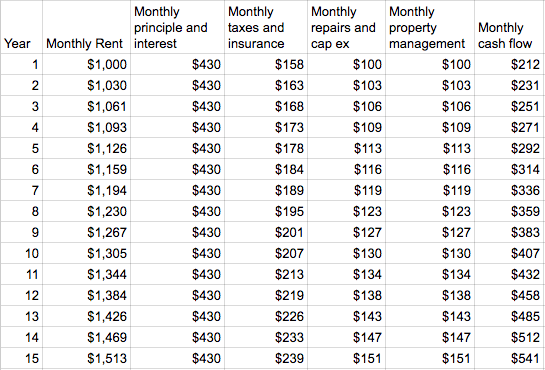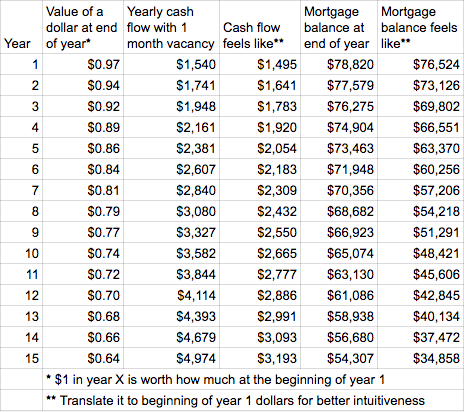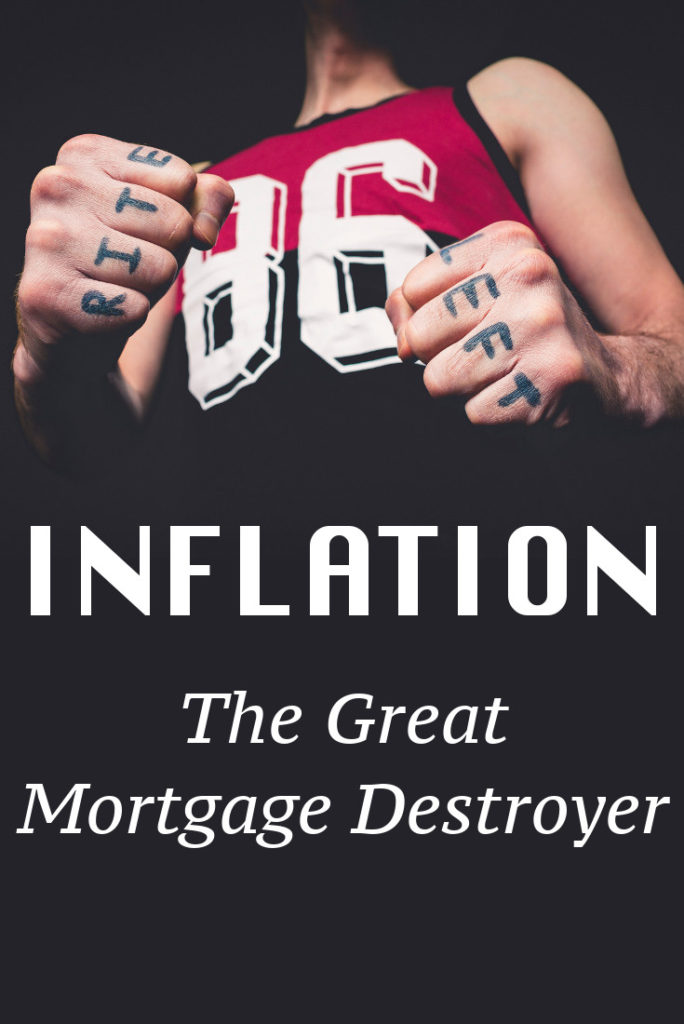If there is one thing people don’t have an intuition for, it’s Einstein’s Theory of Relativity.
So you’re telling me that the speed of light is the same no matter what speed I’m going? So if I’m standing still it’s X and if I’m traveling the exact same direction as the light, going X speed myself, somehow the light is still traveling away from me at speed X?
So you’re telling me that time itself changes based on the observer? So if you have two twins, and one leaves earth to travel around the galaxy for a while at the speed of light, when he comes back he is somehow younger than the other twin?
Ya sure … sounds a little fishy to me. But ok, whatever you say Mr. Genius.
If There’s One More Thing People Don’t Have an Intuition For, It Is Compound Interest
In fact, Einstein himself might have pontificated on this (or maybe not).
Compound interest is the eighth wonder of the world. He who understands it, earns it … he who doesn’t … pays it.
-Albert Einstein
Compound interest works both ways whether you are lending or borrowing. Another form of compound interest is inflation – something everyone is affected by whether you know it or not.
How can we get these powerful forces to work for us rather than against us?
I believe the best way is to have a mortgage balance that someone else pays off. Alternatively, people can look on websites such as https://www.housebuyersofamerica.com/how-to-get-out-of-a-mortgage for more information on mortgages. More on that soon.
Inflation Over 30 Years
It is hard to comprehend how inflation destroys the purchasing power of the dollar over a long time horizon. But let me try to put it in perspective.
The rule of 72 is a shorthand way to estimate how long it takes for compound interest to double. You just divide 72 by your interest rate and that is the number of years it will take to double.
If we estimate an inflation rate of 4.8%, then in 15 years the purchasing power is cut in half. In another 15 year it is cut in half again. So in 30 years, things would be 4 times more expensive.
In other words, in 30 years a ticket to Disneyland will be approaching $500! Hopefully your paycheck keeps up over those 30 years as everything else will be more expensive too…
Maybe 4.8% is a little high to forecast for inflation over the next 30 years, but that is a discussion for another day.
Let’s look at a more generally accepted inflation rate of 3% over the course of 15 years. I think 15 years is about as far as people are comfortable projecting – that could be your target retirement, or when your toddler will head off to college.
$1 in 15 Years Has the Purchasing Power of 64 Cents Today
Inflation slowly destroys the value of the dollar. Even at just 3% per year, with a pretty long time horizon and the compounding effect, it is significant.
Or put another way, you would have to invest 64 cents today at 3% interest to get a dollar 15 years from now.
Notice that I’m not using some wacky high inflation numbers or time horizons. Yet when we go through the numbers for a rental property it yields some impressive results.
Fixed Monthly Mortgage Payments
Let’s imagine I purchase a $100k property with 20% down at a 5% interest rate 30 year mortgage. It rents for $1000 a month – pretty much exactly the same as the two properties I currently own.
My monthly principle and interest payments on that mortgage will be $430. The real shocker is it will be the same $430 payment every month for 30 years.
It never goes up! Over time this payment will feel smaller and smaller. Let’s look at some numbers:

In the first year, this principle and interest payment is 43% of the rent collected. Every year inflation will tick up the monthly rent, taxes, insurance, repair expenses, and property management fees. Yet the principle and interest payment stays the same.
After 15 years the monthly rent is $1513. The principle and interest payment is now just 28% of the rent collected!
With every passing year, the mortgage payment is easier and easier to make. And since it is fixed while our rents are rising, you’ll notice in the far right column, our monthly cash flow goes up.
What About the Mortgage Balance?
The mortgage payments are fixed and over time the tenant is paying down the mortgage for you. Your cash flow is going up, the mortgage balance is going down, and the value of the dollar is going down as well.
Let’s look at the numbers year by year:

At the end of year 1, we receive $1,540 in cash flow. But the value of the dollar is 3% less due to inflation, so is equivalent to $1,495 at the beginning of the year.
The tenant has paid down the mortgage balance a little bit for us. It is now at $78,820. But here is the crazy thing – at the end of the year the mortgage balance is also easier to pay thanks to inflation. To help your intuition on this, we can translate that loan balance to what it would feel like at the beginning of year 1: $76,524.
Do this for 15 years and where do we stand?
$1 in 15 years is equal in purchasing power to 64 cents today. Our yearly cash flow has gone all the way up to $4,974 (remember it increases due to the fixed principle and interest payments with rising rents and expenses) – or translated into today’s purchasing power it is $3,193. The purchasing power from the cash flow has more than doubled!
In 15 years the mortgage balance stands at $54,307, which the tenants have been kind enough to pay it down for us. But that $54k doesn’t seem as significant when inflation has raised the prices of everything. Translated into today’s purchasing power, it is equivalent to just $34,858!
Inflation is the Great Mortgage Destroyer
Prices keep rising, the mortgage payment stays the same. The mortgage payment is easier and easier to make and the mortgage balance feels less and less significant. Thus, if you feel like you should look for homes and would opt for a mortgage payment system for it, you could look at lenders similar to a Mortgage Broker Colorado who can help you out!
If you can master the concepts of compound interest and inflation, you can use them to your advantage.
There really aren’t any other opportunities where an average Joe has the ability to borrow money like this and return a cash flow. The fact that you can go get an extremely reasonable rate for an investment mortgage is frankly amazing, whether you get one to purchase a property in your own country or consult with someone like simon conn with a view to buying a property overseas to let to holidaymakers. It is a gift everyone should take advantage of. However, if you are simply a military veteran after an affordable mortgage so you can own your home then it might be worth using this mortgage calculator.
All you have to do is sit tight while the tenant pays down the mortgage for you and inflation does the rest.
What are your thoughts? Do you understand how powerful a mortgage destroyer inflation is? What’s holding you back from taking advantage of it?
If you are interested in playing around with the numbers yourself, here is the spreadsheet I used.

Great work helping us conceptualize the power of compound interest and inflation.
The rule of 72 can definitely help or hurt you.
For real estate, inflation as the mortgage destroyer seems to be a gem for the average Joe to become sophisticated!
Great explanation, and I especially love your “Cash Flow Feels Like” number. Here’s a question for you, though: if your mortgage interest rate is higher than the rate of inflation, would you advocate paying down the mortgage faster?
If you have enough cash sitting around to buy a new property, it would probably make sense to leverage that cash into a new purchase, but if you’re trickling in a small amount of extra cash, and if it might take several years to accumulate enough to buy a new property, do you think it makes more sense to pay off your mortgage faster and, if necessary, borrow against it later?
That is a very popular question and I suspect the answer is different for everyone. I have been thinking about doing a whole post on this for a while, I don’t think my answer is the most common.
I am not a fan of paying down the mortgage faster. It is better / safer to save in a separate account and just increase your ’emergency fund’ balance. If there is an extended vacancy or extensive repairs needed, what is safer: A) 30% equity and $13k in emergency fund or B) 40% equity and $3k emergency fund? (I consider $3k the minimum you’ll want to have.) The hard part is making it through tough times – if you put $10k towards equity, that money generally won’t be able to be accessed quickly if something goes wrong. Or if there is a downturn and lending standards tighten (refi, line of credit).
So I say pile up that money in an emergency account and decide if you want to draw down on it later to make a new investment.
I agree. No matter what the spreadsheets say cash is leverage and King. It gives you flexibility to meet the needs of the current situation in a way that equity never can. Great article Brian!
Glad to hear someone agrees! I’m sure this isn’t a popular stance with most people who have the point hammered home that debt is bad.
I agree that an emergency fund is important, and I wouldn’t ever advocate that someone pay their last dime down on their mortgage payment. But once a decent-sized emergency fund is in place, I generally throw extra money at my mortgage. Even at 3%, the compounded interest return is better than a lot of other savings alternatives.
Paying extra on my mortgage over the last 16 years (with different properties) has enabled me to (1) refi right before my ARM unlocked in the middle of the housing meltdown, which saved me a lot of money in interest payments going forward, and (2) obtain a sizeable HELOC against my current house, which will give me access to funds if I need them for my fourplex remodel, but will only charge me interest if I need to use it.
I’m not eliminating mortgage debt because all debt is evil, I’m eliminating it because I hate the idea of paying 3% compound interest and earning only the tiniest fraction of that back in my savings account. I’d rather earn 3% compound interest (or more, depending on the loan I’m accelerating) so long as I have a sufficient emergency fund to cover anything unexpected.
Anyway, I was just wondering your position, because I think it’s interesting when people talk about compound interest, and some of them fall into the camp of paying those debts off sooner to make the compounding work in their favor, and others fall into the same camp you’re in, and that is letting inflation and rents take care of it. Thanks for the response!
Yes, I believe your take is more accepted and makes sense.
The fixed rate mortgages I prefer and not paying it down faster are really about removing some risk. I don’t want to suggest you were lucky to be able to access the money with a refi / HELOC, but I wouldn’t suggest somebody bank on that if things don’t go as planned.
Nice article. I agree, low rate 30 year fixed mortgage debt for a real estate investor is a gift. It gives today and it will keep giving for the duration of the loan. No need to pay down the mortgage any earlier. This is the cheapest and best debt that you can have. I was fortunate to be able to purchase (4) four families and finance all with low rate 30 year fixed mortgages. This type of investing will perform much better than the average 401K will.
“There really aren’t any other opportunities where an average Joe has the ability to borrow money like this and return a cash flow. The fact that you can go get an extremely reasonable rate for an investment mortgage is frankly amazing. It is a gift everyone should take advantage of. All you have to do is sit tight while the tenant pays down the mortgage for you and inflation does the rest”.
Completely agree.
Yes! I hate when I hear people trying to pay down the investment mortgage as quickly as possible. Such cheap money!
Thanks Brian, you explained this all very well. It truly is amazing how well inflation helps you pay off your mortgage easier over time.
It is amazing and not that incredibly complex. More middle class people need to know about this!
I remember my uncle telling me about how inflation is the greatest mortgage destroyer when I was a young boy. Funny that it still applies almost 25 years later. 🙂
That’s great! Same concept applies today and will going forward – the government targets 2% inflation (which is likely understated) for the whole system to work and take the steps necessary to make sure it happens. So making it work for you, not against you is key!
This is a great blog! I really liked the way you broke it down. It’s amazing how inflation can help that mortgage payment seem so much easier.
Thanks for reading Amanda – let’s spread the word so more people know how this works!
This is a great way to look at real estate investing. This is also one of the reasons why I am comfortable taking on as much mortgage debt as possible in my 20s (other two reasons being interest rates are low and tenants pay my mortgages). I know that in 5, 10 and 15 years from now my P&I payments will be the same but rents should increase gradually over time.
Compounding interest is one of the most poweful tools in the world. It can be used for creation or destruction (of wealth).
I feel the same way. I’m 31 now and building up as much cheap debt that tenants pay off for me. Long term it is incredible, but most people can’t see past year 1!
When I was younger I never thought about inflation. Now that I’m older I definitely wish I thought more about it b/c I would love to have had my mortgage payment today 🙂 It seems so low compared to what it would probably be today if I had to do it all over again.
It is very misunderstood. People can definitely benefit from thinking about inflation more!
You said “I believe the best way is to have a mortgage balance that someone else pays off”. That may be a bonus for you but it still transfers the inflation (inflation plus interest) to someone else in society. What needs to be done is to remove the theft of inflation from society in general. First of all when the fed increases interest rates all it does its transfer the loss Americans suffer from inflation to higher interest rates which is the flip side of the same coin. Either way this counts as an inflationary loss to all Americans. The fed setting rates allows the banks,
which are private businesses, to operate outside of the free market economy. So basically, the fed raising interest rates is like letting the fox in the henhouse. The fed says it uses the tool of interest rates to control inflation – bull**it. It only “transfers” inflation to higher interest rates which hurts all Americans and which the banks have been profiting handsomely from. We resolve this by returning banks to the free market economy. Nationalize the fed and strip them off the ability to raise or lower interest rates which just transfers inflation from the sector of goods and services into the sector of credit. Housing is something everyone needs, and for an institution or a business to leverage that need in order to profit through inflation which they call interest is theft. Socialize the fed and retool it into the National Credit Agency that verifies the credit of each borrower and then allow the banks, credit unions and other financial lenders to compete in the free market for customers. The lenders with the lowest fees and best service will come out on top.
Sure, but the same thing could be said about money in general. You transfer the loss from someone else, why can’t we just share everything and live in harmony? I’m not in a position to change the game, just play the game as it’s set up.